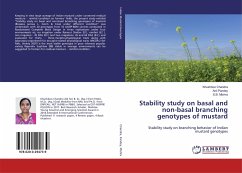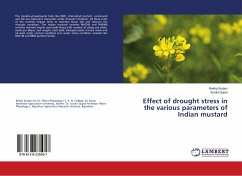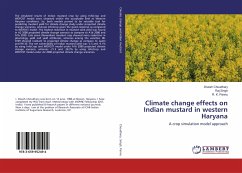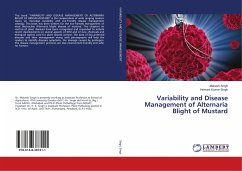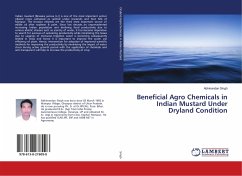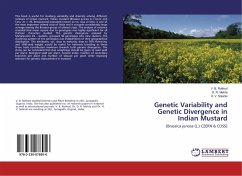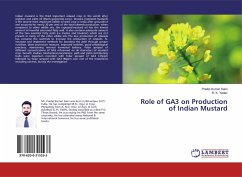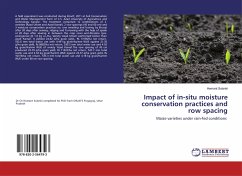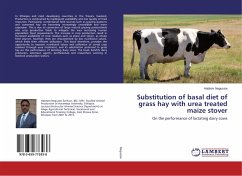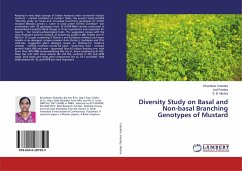
Diversity Study on Basal and Non-basal Branching Genotypes of Mustard
Versandkostenfrei!
Versandfertig in 6-10 Tagen
51,99 €
inkl. MwSt.

PAYBACK Punkte
26 °P sammeln!
Keeping in view large acreage of Indian mustard under conserved residual moisture - rainfed condition on farmers' fields, the present study entitled "Diversity study on basal and non-basal branching genotypes of Indian mustard (Brassica juncea L. Czern & Coss) under rainfed condition" was undertaken with 50 genotypes from 10 AICRP-R&M centres conducted in Randomized Complete Block Design in three replications and evaluated for twenty - five morpho-physiological traits. The suggested crosses with the most divergent parents involved all branching patterns (BB, M-Nbb and H-Nbb) in 13 crosses comb...
Keeping in view large acreage of Indian mustard under conserved residual moisture - rainfed condition on farmers' fields, the present study entitled "Diversity study on basal and non-basal branching genotypes of Indian mustard (Brassica juncea L. Czern & Coss) under rainfed condition" was undertaken with 50 genotypes from 10 AICRP-R&M centres conducted in Randomized Complete Block Design in three replications and evaluated for twenty - five morpho-physiological traits. The suggested crosses with the most divergent parents involved all branching patterns (BB, M-Nbb and H-Nbb) in 13 crosses combining 9 (Tocher's and Euclidean method) and more reliable in six divergent crosses common from Tocher's, Euclidean and PCA methods. Suggested plant ideotype based on findings for moisture stressed - rainfed condition would be basal - branching, semi - compact growth habit (AB) and semi - appressed (less AS) siliqua bearing one; with more than 50% PBBs accommodating SBs, less IL, lower positioning of HFS, deep tap root with more volume (RL and RV), earliness in DFF and DPM stage, bold seeds and other yield components like LS, SS-1 and DME. Yield determinants RV, RL and HFPB are most important.



